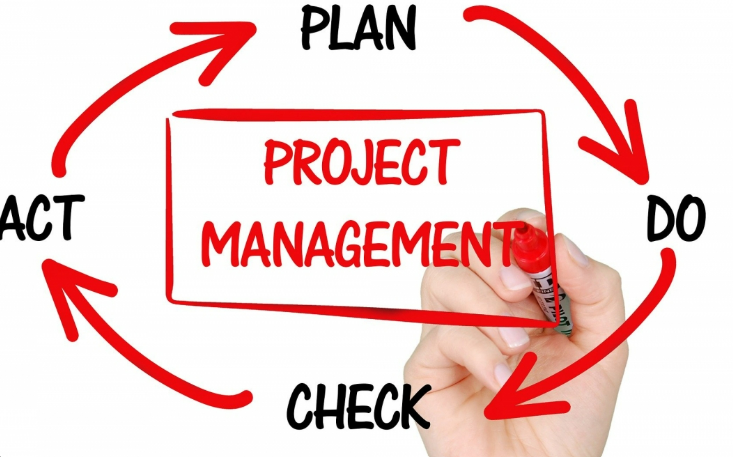Strategic Decision-Making provides a future vision that promotes the values of the company while identifying goals and risks. Decision-making remains true to its principles, defining goals, pointing out dangers, and selecting the best all contribute.
A decision can affect the results of an organization, regardless of how small it may seem. As the challenges grow in complexity and relevance, the choices you make have a cascading effect. Strategic management is certainly well known for Planning, observing, and assessing consistently.
10 Benefits of Strategic Decision Making
To maintain competition, organizations must balance between long-term risk and short-term gains to succeed. Learn more about the benefits of Decision-Making in a Project Management Course and start down a successful path by making the first powerful move.
1) Aids in Reaching Goals
Irrespective of industry, regardless of size or sector, it must be capable of strategic decision-making. Their market leadership, improved customer service, increased brand recognition, and global competitiveness are all made available by these choices. Strategic management, which involves setting and implementing major goals and initiatives by top management, can significantly help businesses achieve their objectives more efficiently and quickly.
2) Monitoring Liquidity
Strategic Decision-Making helps organisations ensure their cash flow is aligned with their long-term goals, which is one of their primary benefits. By closely monitoring cash flow systems and liquidity reports, stakeholders can effectively oversee and manage the financial health and stability of the organization. This oversight provides valuable insights that can inform key strategic decisions and help the organization stay on track to achieve its long-term goals.
3) Strategic Decision-Making Helps in Improving Revenue Generation
Strategic Management chiefly plays a pivotal role in driving essential modifications to the existing workflow by leveraging strategic planning and decision-making processes. Often, organizations may develop profitable ideas and improve their processes to surpass competition altogether by taking inspiration from their tactics. Meanwhile, Strategic Decision-Making is the implementation of innovative ideas that can lead to long-term financial benefits, attracting new investors and enhancing interactions with existing ones. Certainly, Project Management Training helps you in learning these skills.
4) Reduces Legal Risks
The strategic management strategy strengthens policies about staff and other partner participants. It benefits partners and board members by avoiding conflicts of interest. Consulting an attorney, insurance firm, and other specialists frequently makes maintaining legal compliance easier and lowers the potential of fines related to breaking legal responsibilities.
5) Strategic Decision-Making Promotes Understanding and Buy-In
To achieve a comprehensive grasp of the strategic direction, actively involve both the board and personnel in decision-making processes. This approach entails thoroughly explaining the rationale behind each decision and highlighting the associated benefits.
6) Facilitates Progress measurement
A corporation using strategic management defines its goals and assesses its progress. Devising the Success Metrics requires the organization to first identify the elements that are essential to its continued success. Next, the organization sets the goals. Lastly, senior management and the board present crucial actions.
7) Drives Business Growth
Strategy Decision-Making is a crucial component of corporate expansion. It assists in identifying the most effective means of accomplishing a business goal, given that the organization has a decision-making procedure that includes a clearly defined set of rules that every participant has to follow. Utilizing better decisions is aided by the use of diverse data analysis and information discovery technologies.
8) Enables Organisations to be proactive
Integrating strategic decision-making processes can significantly enhance a company’s efficiency and productivity. One of the most notable advantages is that strategic decision-making sets the tone for the entire company by influencing future behavior and actions. A forward-thinking strategy not only guides present actions but also mitigates potential future risks, positioning the company for long-term success.
9) Awareness of dangers from the outside
Planning for your company’s development without maintaining the potential hazards results in fruitless endeavors. The first stage in formulating and managing strategic decisions is awareness of external dangers. As a result, you minimize your chances of failing greatly since you are equipped.
10) Stronger Knowledge of rivals’ Capabilities
For any firm, developing a competitive edge is important. Altogether strategic decision-making prepares businesses for a competitive edge. Certainly, by taking advantage of the advantages and disadvantages of competitors and identifying their growth opportunities, businesses can achieve a significant competitive edge.
Who Will Be Able To Be Involved In Strategic Decision-Making
A meaningful, cooperative process that includes all stakeholders from the CEO and leadership team to senior leaders and employees, subject-matter experts, and external advisers occasionally underlies successful strategic decision-making.
People may have the most extensive knowledge, competence, and viewpoint about the matters at hand, while managers focus on achieving operational short-term KPIs. The mission and vision of the organisation, besides the medium- to long-term goals, are the board of directors’ basic duties.
Your team members develop knowledge and provide guidance, eventually helping you make informed strategic choices based on their expertise.
Henry Harvin’s Project Management Course – Strategic Decisions-Making

Henry Harvin meticulously curates and designs the Project Management Certification Program Training to equip participants with a wide range of essential project management skills and knowledge. This comprehensive training program caters to the diverse needs of individuals, regardless of their prior experience in the project management field. Henry Harvin carefully crafts this program’s certification to enhance operational efficiency and elevate project outcomes to a superior standard. The PMP® certification stands as a distinguished credential that subsequently holds the potential to elevate the earning potential of professionals in India substantially.
Individuals who complete a certification program in their respective fields tend to earn salaries roughly 25% higher than their counterparts who do not pursue such certifications.
Conclusion
However, proper implementation can fix certain drawbacks rather than viewing them as intrinsic constraints. Companies altogether can achieve remarkable success by using the best techniques for strategic decision-making. This involves conducting thorough risk assessments, prioritizing important stakeholders, and using data-driven insights. Certainly, to ensure a deep understanding of the organization’s long-term goals in decision-making, organizations should employ additional Strategic Project Training These methods can include scenario planning, SWOT analysis, and comprehensive risk assessment to enhance the decision-making process and align it with the organization’s overall strategic direction.
FAQs
Ans – Certainly, conceptual decision-making involves creatively solving complex problems by imagining various scenarios and devising innovative solutions. This process requires critical thinking, considering multiple perspectives, and exploring unconventional ideas to arrive at effective and forward-thinking decisions.
Ans- The individuals thoroughly comprehend their company’s internal capabilities and limitations, as well as the external factors that may impact their operations. This knowledge empowers them to make carefully considered choices that align with the broader strategic direction of the organization.
Ans – The most influential modes in the strategic management process and the three main approaches used by managers followings are entrepreneurial, adaptive, and planning.
Ans – Strategic thinking relies on several pillars: envisioning long-term goals and aspirations, analyzing internal and external environments, generating innovative solutions and ideas, planning detailed action steps, and adapting to changing conditions.
There are six common pillars of strategic thinking –
1. Tools for analysis
2. Strategic objective
3. Values
4. Vision
5. Core goals
6. Plan of action



